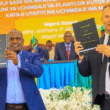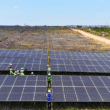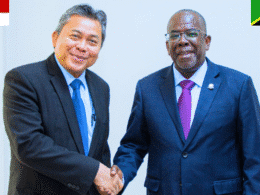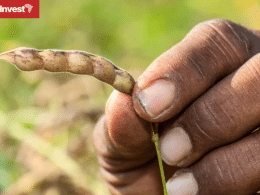Tanzania President Jakaya Kikwete recently attended and chaired a meeting along with the Zanzibar President Amani Abeid Karume, Prime Minister Mizengo Pinda, cabinet ministers, development partners, permanent secretaries, regional commissioners and active private sector players in which it was discussed that an initial capital of USD 500 million would be required in order to effectively launch the Tanzania Agricultural Development Bank (TADB), which will, in turn, help propel the country’s green revolution initiatives.
The overall idea of the meeting was outlined in a presentation by the Agriculture Working Group of the Tanzania National Business Council (TNBC). The presentation was made at the council’s sixth meeting that began in Dar es Salaam yesterday.
“We’re only making proposals in accordance with what we think can help to revolutionize agriculture,” said the group’s chairman, Felix Mosha in a report by the Citizen, “the Government will then decide what to do and when to do it.”
In addition, Mr. Mosha said that the USD 500 million should come from the private sector via long-term bonds that have been guaranteed by the Government.
The purpose of the TADB will be to assist farmers in accessing inexpensive long-term loans to be used in the purchasing of new farming techniques and technologies as well as to assist in acquiring access to essential farm inputs.
“We have established that for a long time, agriculture has been receiving just about 10 percent of the total loans disbursed by commercial banks to the private sector,” said Mr. Mosha, “this is too little for a sector that is claimed to be the economic mainstay.”
Mr. Mosha went on to explain that only about 0.8 percent of the 10 percent is reserved for actual agricultural production work, with the rest going to the short-term marketing of agricultural products.
In addition to this, public investment in agriculture had also decreased to approximately 2.6 percent of the national budget until recently and it now stands at 6.2 percent.
“This compares poorly with neighboring Malawi which invests 12 percent of its national budget in agriculture,” he said.
The full potential of investment in the sector has yet to be fully exploited, as indicated by the fact that fertilizer usage currently stands at just 9 kilos per hectare in Tanzania as compared with 27 kilos per hectare in Malawi and 53 kilos per hectare in South Africa.
The Citizen has reported President Kikwete as having said that the Government is aware of the issues that are facing the country’s agriculture sector and has indicated an urgent need to begin putting the proposed solutions into practice.
“The problems are well known, we only need to find a lasting solution for them and assign right people to implement the solutions,” said the country’s head of state.










